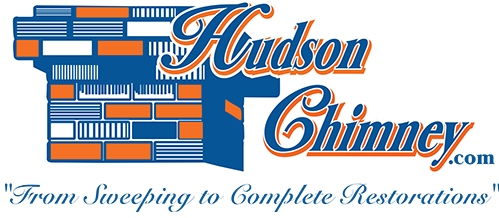by Mark Hudson | Jun 10, 2014 | chimney maintenance

Leaky chimney got you down? Give the pros at Hudson Chimney a call!
Hudson Chimney has been giving quality chimney services for over thirty years now. And throughout our experience, we’ve collected a considerably wide knowledge when it comes to chimney problems and issues.
One of the most common issues that we’ve encountered throughout our experience is the case of the leaky chimney. Seven out of ten households with chimneys have been complaining about leaks and are asking for help to resolve said issue.
Here are a few things that you may find informative and rather helpful.
The common causes of chimney leaks:
- Although chimneys are generally concrete, there are cases wherein only the outside is solid and the inner portion is filled with solid fillers. According to the Chimney Safety Institute of America, majority of the masonry materials utilized are actually porous and are prone to absorbing water. The process of filling the brick plus the nature of the materials used makes the brick more susceptible to having cracks and channels that may serve as an entrance for water. One cracked brick is relatively harmless. But imagine fifty bricks or more? The amount of water that can pass through that is enough to cause an annoying leak around your house.
- For aesthetic purposes, many people make use of fashionable bricks in their chimneys. These bricks are more porous and rough on the surface compared to its regular counterpart. The key thing to look out for when using fashionable bricks is its flashing. The most preferred and advisable flashing to utilize is either the lead, lead coated copper or the copper (gold).
- Chimney flashing is done to prevent leakage. But sometimes when flashing is improperly installed, worn, inadequate or even corroded, this would backfire and cause what it’s meant to prevent in the first place.
Warning signs that your chimney is leaking:
- When you hear a constant, omnipresent dripping noise.
- Cracks and deterioration in the flue lining
- Water stains on or around your chimney
What you can do to fix it!
Your first instinct once you suspect your chimney is leaking is to go up there and see for yourself if there’s anything amiss. Although this is relatively the first thing you can do, it’s not as practical and effective as you may think. 80% of the time, people without training won’t be able to detect a leaky chimney or know how to remedy it. The quick and effective solution? Call our professionals and schedule an appointment as soon as possible so we can have your chimney waterproofed as well as install a chimney cap or crown!
by Mark Hudson | May 27, 2014 | chimney maintenance
Carbon monoxide poisoning can be fatal. It can also cause other unpleasant symptoms like headaches. If your chimney is not regularly cleaned and inspected, obstructions can interrupt the flow of air…putting you in danger.
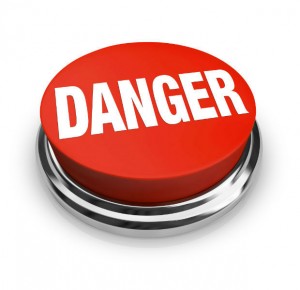
If anything clogs the air flow or draft in your chimney, you are at risk for carbon monoxide poisoning.
The Facts
Carbon monoxide is a toxic gas that is formed through moisture, incomplete combustion and negative air pressure. It usually happens when there are people who smoke in the house, fuel-burning devices most especially in your chimney. Carbon monoxide is common inside the chimney because of the air that goes in and out of the chimney and also the particles that come from open combustion; complete or incomplete.
It cannot be seen, felt and also doesn’t have any odor. When you experience symptoms like nausea, headache and fever that are all too familiar, you tend to think it’s just a case of the common flu. So you don’t have it examined by a medical professional. However, only a thorough medical examination by your doctor can determine whether or not it is carbon monoxide poisoning. A piece of advice: when you feel ill, go and see your doctor. Early diagnosis and treatment will benefit you in the long run.
Prevention
To proactively stop carbon monoxide from entering your home, it’s always good to have your chimney checked ad swept regularly. Also, the use of carbon monoxide detectors or alarms can prove to be very useful. They help in determining if carbon monoxide is present inside the house and if it is mild or already too dangerous.
A chimney cap will also help big time. It will lessen the chances for water to seep in since it’s the number one cause of most of the problems in the chimney. It can also prevent any bad air from coming in and allowing bad smoke to also go out properly.
We have been serving the beautiful people in the northeastern part of Florida for over thirty years now, we are proud of the services we provide. Let us become your trusted source for all things chimney.
by Mark Hudson | Nov 22, 2013 | chimney maintenance
Your chimney is potentially one of the most taken-for-granted parts of your home. You know it’s there but rarely pay it very much attention. It’s one of those things that you expect to be there for you when you need it but may not give it much thought in the meantime. Not very many homeowners give much thought to keeping the chimney’s exterior in tiptop shape; “it’s all just cosmetic,” we think. This thought process isn’t one to be ashamed of, but it is one to be corrected.
Chimney materials – brick and mortar – are, by nature, porous. As such, they experience hastened deterioration as a result of prolonged exposure to and contact with water and the elements. The freezing and thawing process—during which time water that has penetrated the various chimney materials freezes and expands—quickly deteriorates the overall construction of your chimney.
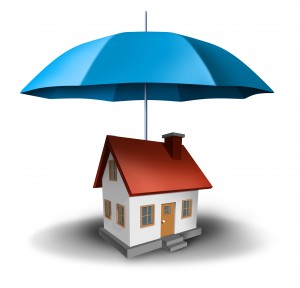
Water is corrosive to masonry over time. Preventing water from getting into your chimney is critical to optimal performance and safety.
One way to limit the impact the freezing and thawing cycle has on your chimney is to prevent as much water as possible from penetrating the materials as possible. Water in your chimney can also cause rust on steel and cast iron parts, ultimately weakening or destroying them over time. The exterior of your chimney is constantly getting battered from the weather. Harsh weather conditions can have a negative effect on your chimney.
By waterproofing the chimney, it will repel up to 99.9% of the water that would otherwise penetrate the brick and/or other materials. Waterproofing is a true preventative measure that can add years to your chimney’s life. Because it’s not a requirement, many homeowners deprioritize it; this is a big mistake! There are many issues that can develop as a result of water being on and getting in to your chimney, and, as such, swift and immediate action should be taken to ensure that you’re not faced with unnecessary and avoidable repairs bills.
Unless you simply want to get rid of your chimney sooner or later, there really is no excuse for not waterproofing it. This one simple thing can help ensure that both the water outside won’t enter your house through the chimney and that you are able to enjoy your fireplace for many years to come. It’s time to look at the condition your chimney’s exterior is in, get it repaired if necessary, and have it coated with a waterproofing product.
by Mark Hudson | Aug 22, 2013 | chimney maintenance, fire safety
What to Do When You Smell Chimney Odors
Having a chimney can be a great addition to a home but the smells they sometimes emit can be extremely unpleasant. There are many different things that may cause chimney odors, from animals living within the chimney to creosote that has built up on the chimney walls. Whatever the cause, there are a few things that every homeowner should do if they notice a strange and unpleasant odor coming from their chimney. Anything that can cause an odor can be identified with an inspection.
As soon as noticeable odors start coming from the chimney, it is important to stop using the chimney immediately. There are some causes of chimney odors, such as creosote, that can actually cause a fire hazard in addition to a smell. Until the cause of the odor has been determined, it is best to avoid the risk of a flame getting out of control by ceasing to use the fireplace at all. In many cases, the problem will have a quick fix and a fire can be enjoyed again soon.
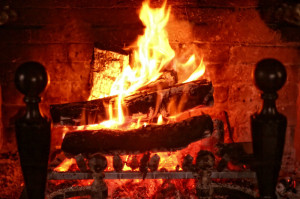
Chimney odors can be caused by several different sources. An inspection can help you identify the problem.
The next step is to do a basic cleaning of the fireplace and the surrounding area. For example, make sure that there is not any excess ash or debris inside of the fireplace. A small amount of ash is fine for purposes of insulation, but too much can be dangerous as well as unpleasant. In addition, debris could be an indicator of what is causing the issue. For example, moisture could cause a smell but it could also cause brick and clay to fall from the chimney.
If a smell starts coming from the chimney, stop and look at what is being burned in the fireplace. Only material that is intended for the fireplace, such as coal or properly seasoned wood, should be used to make a fire. Burning other material may be the source of the smell that comes from the fireplace or chimney. Not only will it smell bad, but this could also cause potential damage to the chimney as well as a dangerous flame.
There are a few simple habits that every homeowner should establish in order to keep their chimney from producing unwanted odors. Perhaps the most important is making sure that the damper is closed when the fireplace is not in use. This prevents normal chimney odors from blowing into the house and through the air of the living space. This is a simple fix that may take care of unwanted odors for good.
If the problem is not immediately apparent or if it requires a thorough cleaning of the chimney, it is important to call a professional chimney sweep. A chimney sweep will have the tools and the know how to take care of the issue quickly, safely, and efficiently. Trying to clean the chimney can be dangerous for an inexperienced person, both because of potential animals or chemicals and because of the necessity to climb on the roof. To avoid the problem in the first place, consider having an annual cleaning by a chimney sweep.
If there is an unpleasant smell coming from the chimney, the safety of the home and everyone in it should be the first priority. Until the cause of the odor can be determined and fixed, stop using the fireplace and chimney immediately. The problem may require a simple solution, such as closing the damper, or it may be more complicated. In this case, contact a professional chimney sweep instead of attempting to make it a DIY project.
by Mark Hudson | Jul 15, 2013 | chimney maintenance, fire safety, fireplaces
There are few things more pleasurable than coming in from the cold and building a roaring fire. In order to fully enjoy your fireplace, it is important to keep in mind the maintenance that keeps you safe and warm. Hiring a certified chimney sweep to inspect your heating system once a year is critical. This will remove the worries from your mind. After all, you have enough worries!
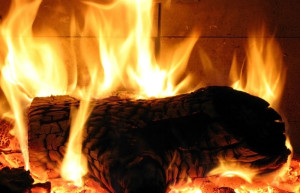
Crackling Fire – Jacksonville FL – Hudson Chimney
Why shell out hard-earned money to hire a sweep? There are many reasons; but they mainly are the same reasons you’d take a car that wasn’t running properly to a mechanic. By the time there is a problem with your car, it is sometimes more costly and can endanger your safety. Sweeps, like mechanics can see things you don’t notice. And a set of professional eyes on your chimney may see smaller problems before they become costly repairs. Some of the things your sweep will be looking for are:
- “Puffy” or “honey combed” creosote
- Distorted metal of the damper, metal smoke chamber connector pipe or factory-built metal chimney
- Cracked or malformed flue tiles.
- Discolored and/or damaged rain cap
- Heat-damaged TV antenna attached to the chimney
- Creosote flecks and pieces on the roof or ground
- Roofing material broken from hot creosote
- Fissures in exterior masonry
- Evidence of smoke escaping through mortar joints of masonry.
Here are 5 tips for how to best keep your system safe and efficient:
- Have a certified chimney sweep or city-paid building inspector look at your whole system.
- Have your chimney professionally cleaned and inspected.
- Do everything you can to prevent water from entering the system. Water can cause damage to the structural integrity of your chimney and increase the odds of a chimney fire.
- Keep your eyes and ears open and if you smell an odor, this could indicate a blockage in your chimney or excess creosote.
- Learn as much as you can about creosote. The Chimney Safety Institute of America also provides a great deal of useful information for homeowners.
